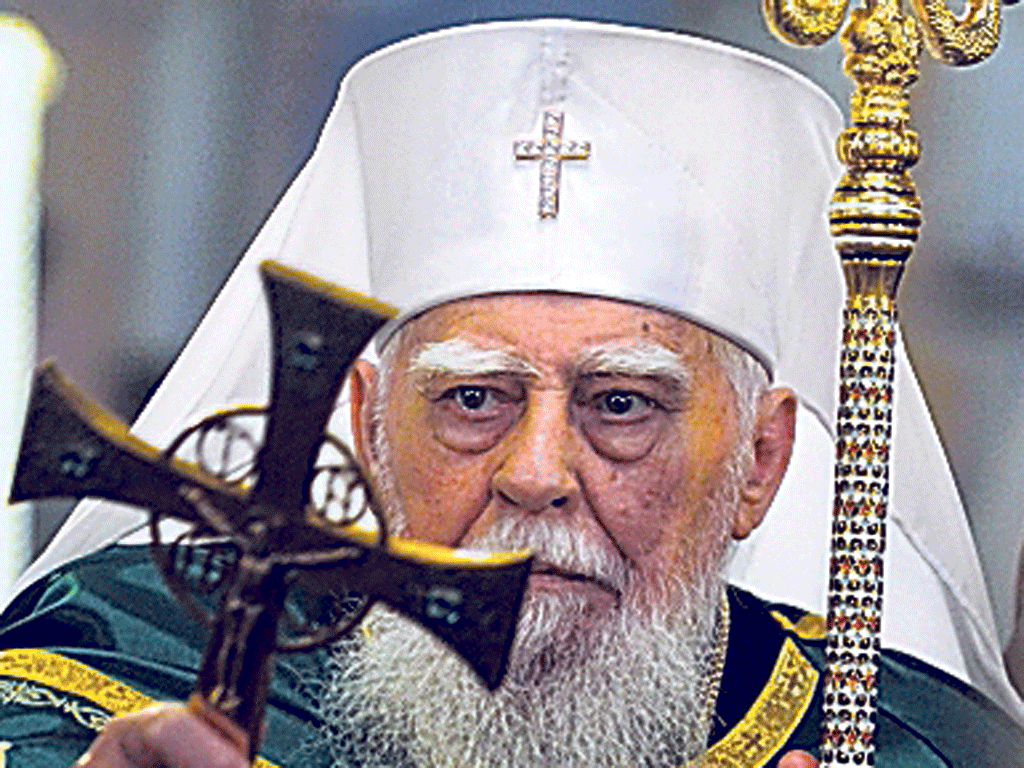Patriarch Maxim: Church leader under communism

Patriarch Maxim of Bulgaria was a priest who saw regimes come and go over his long tenure. From 1971 Maxim led the Bulgarian Orthodox Church – Bulgaria's dominant religion, claiming more than 80 per cent of the country's 7.4 million people.
Born Marin Naidenov Minkov, in Oreshak, a village in the Balkan Mountains, he was the second of the two children. After attending the village school, he became, probably under his mother's guidance, a novice monk in the nearby Troyan Monastery. Given the unrest in Bulgaria, it was one of the safest places for a teenage boy to be and also gave opportunities for further advancement. From the monastery he went to study Orthodox Theology at Sofia University in 1938.
King Boris III had established a military dictatorship in the early 1930s and aligned Bulgaria closely with Germany, its First World War ally, hoping to restore the territories it had lost. The Orthodox Church was closely linked to the regime and to Bulgarian nationalism. In April 1941, Bulgaria participated in the German-led attack on Yugoslavia and Greece. In return, it received most of Thrace from Greece, and Macedonia and parts of eastern Serbia from Yugoslavia.
As Czarist Russia and its Orthodox church had backed Bulgarian independence from Turkey, Bulgaria refused to join Nazi Germany against the Soviet Union in June 1941. Yet, unexpectedly, in September 1944, the Soviet Union declared war on Bulgaria and Soviet occupation followed. By that time, Maxim was a 30-year-old priest having to tread cautiously.
From 1948, religious organisations were restrained or banned. The Orthodox Church continued functioning but under close supervision. The regime played cat-and-mouse with the churches, seeking to control rather than destroy. The Orthodox Church was deprived of jurisdiction in marriage, divorce, issuing birth and death certificates, and other functions. Religious studies were removed from curricula. Anti-religious propaganda was introduced and some church dignitaries were imprisoned or killed.
In March 1954, a year after Stalin's death, Todor Zhivkov took over the Communist leadership. He followed Moscow's line closely, at the same time playing to the patriotic fervour of his fellow Bulgarians. The Orthodox Church was given a role to play in this, and Maxim's star was rising. He became secretary general of the Holy Synod, in 1955, and titular bishop of Branit in December 1956. In October 1960 he was elected Metropolitan of Lovech. Despite the atmosphere of persecution, he was able to win enough recognition with the Politburo to secure election as Patriarch in July 1971 after the death of Patriarch Cyril.
With both infiltrated by the respective security services, the Bulgarian Orthodox Church was urged to follow the lead of its Russian relative by joining the World Council of Churches and using it to promote pro-Soviet positions. This they did, and Maxim travelled widely on church affairs.
Once the Communist regime fell in 1989 it was remarkable how many regime-supporters seemed to find Christianity overnight. Yet in the early 1990s, a split in the Bulgarian Church occurred. Maxim was able to take control of the majority of the parishes but the opposing faction formed the Bulgarian Orthodox Church – Alternative synod.
For more than a decade, the two synods existed side by side, with the dissidents claiming to have rallied 30 per cent of the country's 1,000 priests. The schism ended in 2010 when the head of the alternative synod, Metropolitan Inokentii, called for a healing of the division and the rival synod was dissolved. A panel reviewing Communist-era collaborators with the security services found no links to Maxim, though it said that 11 out of the country's 15 bishops had worked for the Communist regime.
Bulgarian President, Communist Georgi Prvanov, awarded Maxim with the highest order, Stara Planina, for "enormous efforts in the spiritual life of Bulgarian people and wise administering of the Bulgarian Orthodox Church."
Maxim died of heart failure. The Pope sent a message of condolence to the Bulgarian Orthodox Church, while Benedict XVI, wrote that Maxim "dutifully served the Lord and His people… I thank the Lord for the good relations the Patriarch developed with the Catholic Church ... and I hope that this good rapport may continue …"
Marin Naidenov Minkov, head of Bulgarian Orthodox Church: born Oreshak, Bulgaria 29 October 1914; died Sofia 6 November 2012.
Subscribe to Independent Premium to bookmark this article
Want to bookmark your favourite articles and stories to read or reference later? Start your Independent Premium subscription today.

Join our commenting forum
Join thought-provoking conversations, follow other Independent readers and see their replies